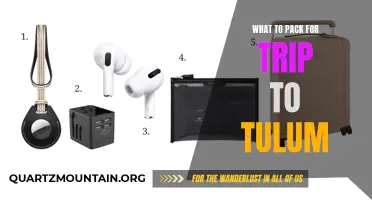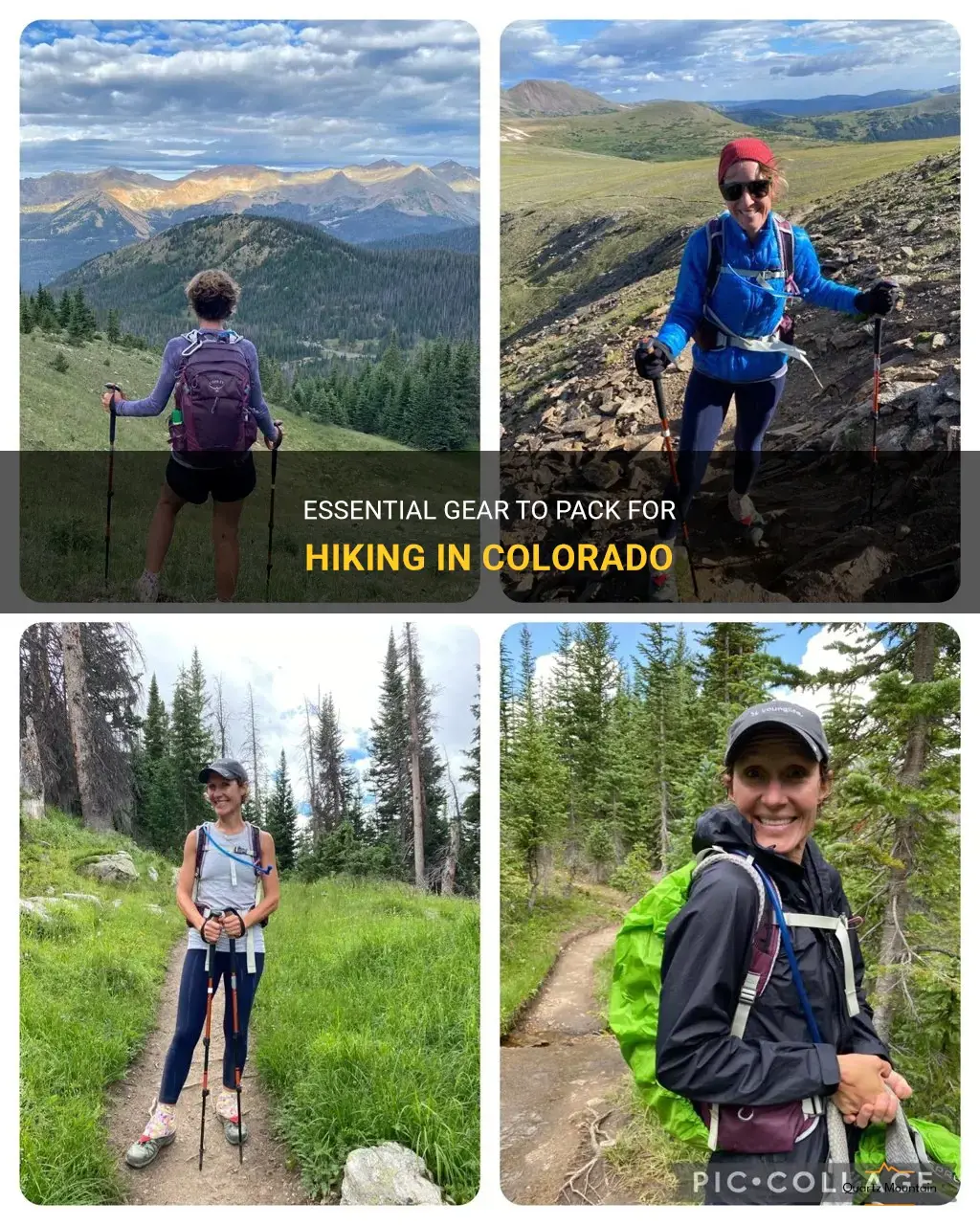
If you're an outdoor enthusiast with a sense of adventure, hiking in Colorado is a dream come true. With its stunning mountain vistas, crystal clear lakes, and diverse wildlife, this state offers some of the best hiking trails in the country. However, to truly enjoy and make the most of your hiking experience in Colorado, it's essential to pack the right gear. Whether you're a seasoned hiker or a beginner, having the right tools and supplies can make all the difference in ensuring a safe and enjoyable trek. From sturdy hiking boots to a reliable navigation system, this guide will help you determine the essential gear to pack for hiking in Colorado. So dust off your backpack, lace up your boots, and get ready to hit the trails with confidence!
What You'll Learn
- What are the essential items to pack for hiking in Colorado?
- What clothing should I pack for a hiking trip in Colorado?
- Are there any specific gear or equipment recommendations for hiking in Colorado?
- What are some important safety items to include in my hiking pack for Colorado?
- Are there any unique items or considerations to keep in mind when packing for hiking in the Colorado mountains?

What are the essential items to pack for hiking in Colorado?
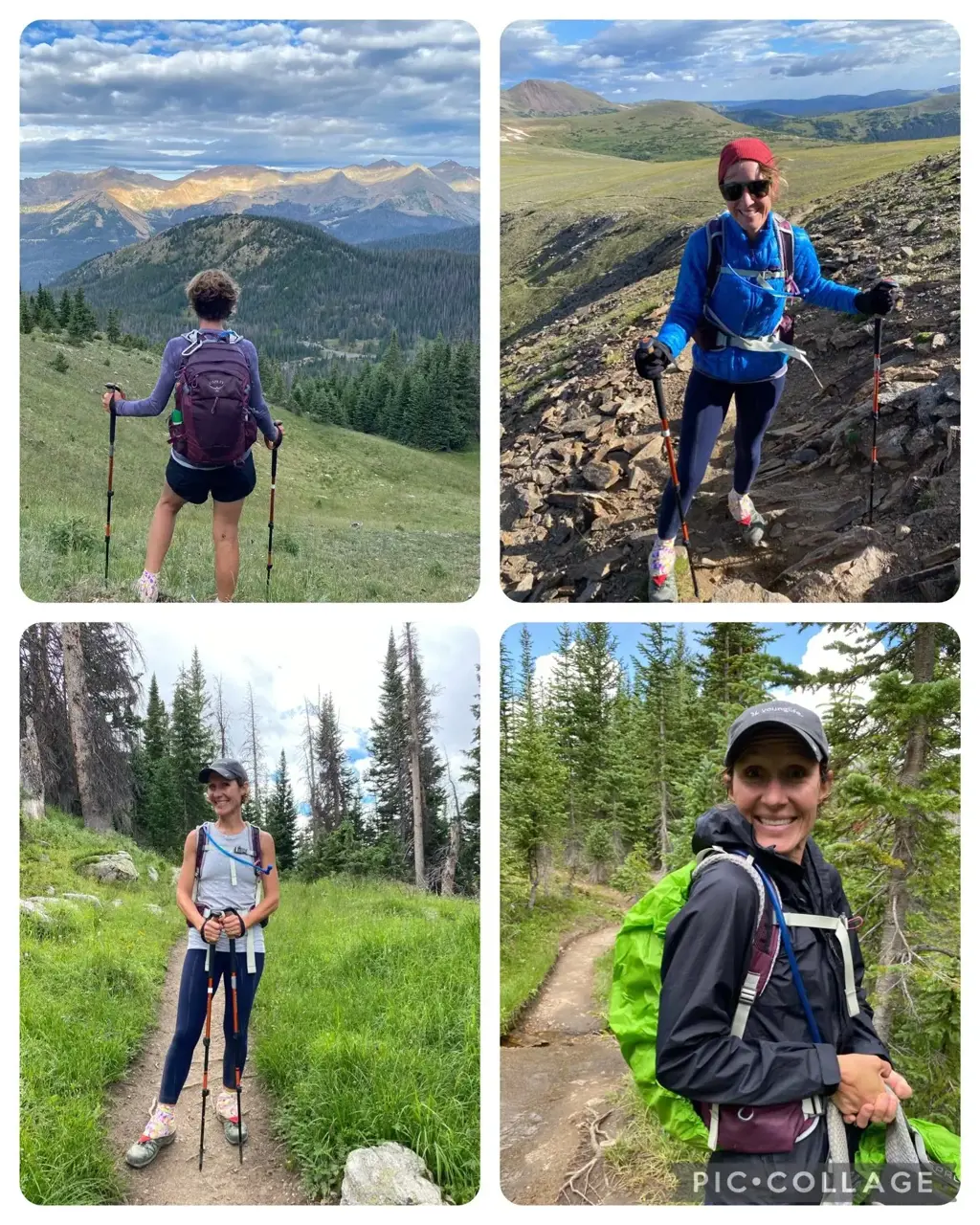
When embarking on a hiking adventure in Colorado, it is essential to pack the right gear to ensure a safe and enjoyable experience. Colorado's diverse terrain and unpredictable weather require hikers to be prepared for various conditions. Here are some essential items to pack for hiking in Colorado:
- Hiking Boots: Investing in a good pair of hiking boots is crucial. Look for boots that are sturdy, waterproof, and provide ankle support. This will help protect your feet and ankles on uneven terrain and prevent blisters.
- Layered Clothing: Colorado's weather can change rapidly, so it's essential to dress in layers. Start with a moisture-wicking base layer, add an insulating middle layer, and top it off with a waterproof and breathable outer layer. This way, you can easily adjust your clothing to stay comfortable in changing weather conditions.
- Navigation Tools: Carry a reliable map and compass or a GPS device to navigate the trails. It's crucial to know how to use these tools before your hike to avoid getting lost. Familiarize yourself with the area and plan your route in advance to ensure a safe and successful hike.
- Sun Protection: Colorado's high altitude means stronger and more intense sun exposure. Pack a wide-brimmed hat, sunglasses, and sunscreen with a high SPF to protect your skin and eyes from harmful UV rays. Reapply sunscreen regularly, especially if you are hiking at higher elevations or during prolonged sun exposure.
- Hydration System: Staying hydrated is essential when hiking in Colorado's arid climate. Carry a water reservoir or water bottles and drink plenty of fluids throughout your hike. It's a good idea to bring a water filter or purification tablets in case you encounter natural water sources along the trail.
- Snacks and Food: Pack high-energy snacks and meals for your hike. Granola bars, trail mix, and jerky are excellent choices for quick and easy energy. Additionally, bring a packed lunch or lightweight meals that are easy to prepare on the trail. It's important to pack enough food to sustain your energy levels during the hike.
- First Aid Kit: Accidents can happen on the trail, so it's important to carry a basic first aid kit. Include band-aids, antiseptic ointment, blister treatment, pain relievers, and any personal medications you may need. Familiarize yourself with basic first aid procedures before your hike.
- Emergency Supplies: Prepare for unexpected circumstances by packing emergency supplies, such as a whistle, headlamp, extra batteries, a space blanket, and a multi-tool. These items can be invaluable in case of emergencies or if you end up spending an unexpected night on the trail.
- Bug Repellent: Depending on the time of year and location, insects can be a nuisance while hiking in Colorado. Bring insect repellent to keep bugs at bay and minimize the risk of mosquito or tick bites.
- Backpack: Invest in a comfortable and durable backpack that can carry all your essential gear. Look for a backpack with adjustable straps, hip belt, and plenty of compartments for easy organization. A properly fitted backpack will distribute the weight evenly and reduce strain on your back and shoulders.
Remember to always check the weather forecast, trail conditions, and any advisories before heading out on a hike in Colorado. It's important to be prepared and knowledgeable about the area you plan to hike in. By packing the right gear and following safety guidelines, you can have a memorable and enjoyable hiking experience in Colorado.
Essential Items to Pack for a Hostel Stay in Ecuador
You may want to see also

What clothing should I pack for a hiking trip in Colorado?
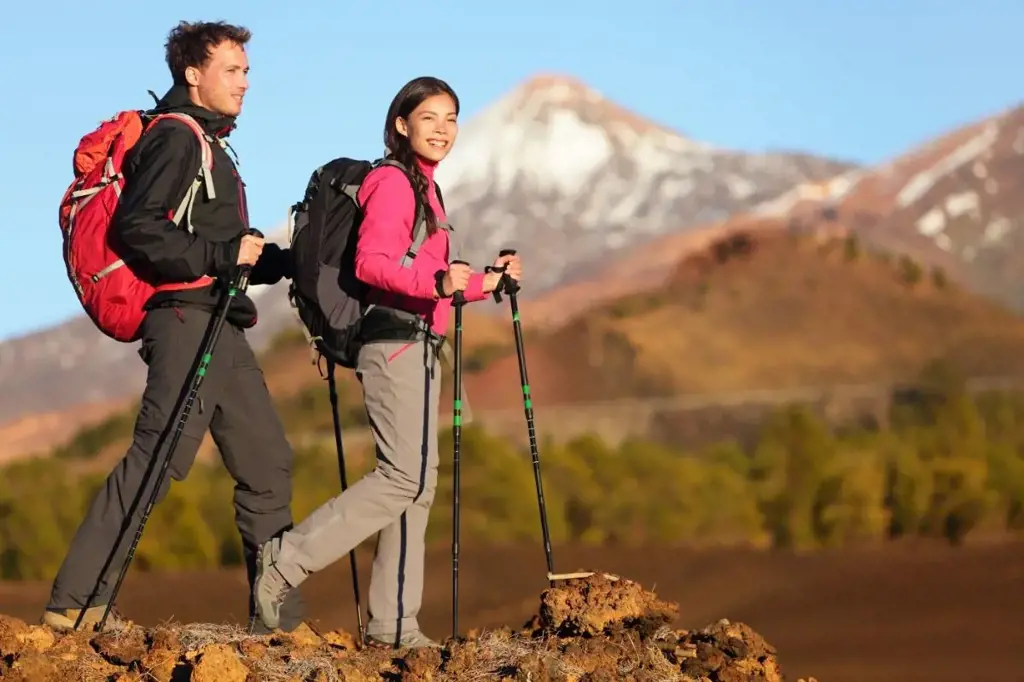
When planning a hiking trip in Colorado, it's important to pack the right clothing to ensure comfort and safety on the trails. The weather in Colorado can be unpredictable, with rapid changes in temperature and the possibility of sudden storms, so it's essential to be prepared for various conditions. Here's a guide to help you pack the right clothing for your hiking adventure in Colorado.
Layering is Key:
Colorado's weather can vary greatly throughout the day, so it's important to dress in layers that you can easily adjust. Start with a moisture-wicking base layer made of synthetic materials or merino wool to keep your skin dry and regulate body temperature. Avoid cotton, as it retains moisture and can make you feel cold.
Insulating Mid-Layer:
Choose an insulating mid-layer such as a fleece or down jacket to provide warmth during colder periods or higher elevations. Fleece jackets are lightweight, breathable, and offer good insulation. Down jackets provide excellent warmth-to-weight ratio and are packable, making them a great choice for backpacking trips.
Outer Shell:
Pack a waterproof and windproof jacket as your outer shell layer. Look for jackets made with a breathable material like Gore-Tex or similar fabrics to prevent overheating and allow moisture to escape. Additionally, opt for a jacket with a hood to protect yourself from rain or hail.
Bottoms:
For pants, choose lightweight and quick-drying materials like nylon or synthetic blends. Convertible hiking pants that can be zipped off into shorts are a practical option, allowing you to adapt to changing temperatures during the day. If you prefer shorts, make sure they are long enough to protect your legs from brush and sun exposure.
Base Layers for Legs:
Wear moisture-wicking and quick-drying base layers underneath your pants or shorts. Consider thermal leggings for colder hikes or when venturing into higher altitudes.
Footwear:
Invest in a good pair of hiking boots or trail shoes that provide ankle support and have a rugged sole for traction. Make sure to break them in before your trip to avoid blisters and discomfort. Also, pack a few pairs of moisture-wicking hiking socks to keep your feet dry and help prevent blisters.
Hats and Gloves:
A wide-brimmed hat or a cap with a neck flap is essential for sun protection, especially at high altitudes where the sun's rays can be stronger. Additionally, bring lightweight gloves to protect your hands from wind and cold temperatures during early mornings or at higher elevations.
Accessories:
Don't forget to pack a lightweight, packable backpack to carry essentials like water, snacks, a first aid kit, sunblock, a map, and a compass. It's also a good idea to bring a pair of sunglasses to protect your eyes from the sun's glare and to consider using trekking poles for added stability on steep or uneven terrain.
Remember that weather conditions can change quickly in Colorado, and it's important to be prepared for unexpected shifts in temperature and precipitation. It's always better to carry extra layers and not need them than to be caught unprepared in inclement weather.
By packing appropriate clothing suitable for layering, you can ensure that you remain comfortable and safe throughout your hiking trip in Colorado. Having the right gear will allow you to fully enjoy all the beautiful trails and breathtaking scenery that the state has to offer.
What to Pack for a Four-Day Vacation: Essential Items to Consider
You may want to see also

Are there any specific gear or equipment recommendations for hiking in Colorado?
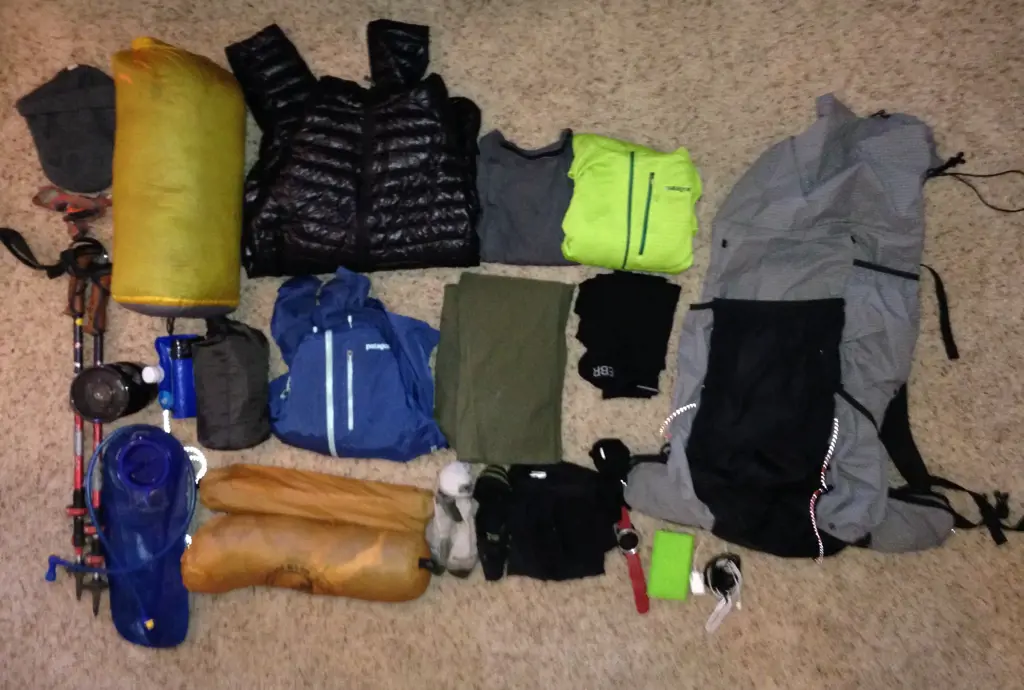
Hiking in Colorado is a popular activity due to its stunning mountain scenery, diverse trails, and abundance of outdoor recreational opportunities. However, hiking in the Colorado mountains requires careful planning and preparation, including having the right gear and equipment. Here are some specific recommendations for hiking in Colorado.
- Footwear: Colorado's trails can range from rugged and rocky to muddy and slippery. It is crucial to have sturdy and comfortable footwear that provides good ankle support. Hiking boots or trail shoes with a Vibram sole are recommended to provide traction and stability on various terrains.
- Clothing: The weather in Colorado can be unpredictable, especially in the mountains. It is important to dress in layers to adapt to changing weather conditions. A moisture-wicking base layer, a mid-layer for insulation, and a waterproof and breathable outer layer are essential. Don't forget to bring a hat, sunglasses, and sunscreen to protect yourself from the intense mountain sun.
- Backpack: A good backpack is essential for carrying your gear and supplies. Look for one with a capacity of at least 30 liters to accommodate extra layers, food, water, and other essentials. Make sure it has comfortable shoulder straps, a hip belt for added support, and adjustable straps to distribute weight evenly.
- Navigation tools: Colorado's trails can be vast and intricate, making it essential to have the right navigation tools. Bring a detailed topographic map or a GPS device specifically designed for hiking. It is also a good idea to carry a compass and know how to use it in case your electronic navigation devices fail.
- Water and hydration: Staying hydrated is crucial when hiking at higher altitudes. Carry a water bottle or a hydration reservoir with a capacity of at least two liters. Plan your route accordingly to ensure you have access to reliable water sources along the trail, or consider bringing a water purifier or filtration system if necessary.
- Emergency supplies: Colorado's mountains can be unforgiving, and it is important to be prepared for unexpected emergencies. Always carry a first aid kit that includes essentials like bandages, antiseptic wipes, pain relievers, and blister treatment. Additionally, consider carrying a whistle, a flashlight, a multi-tool, and a lightweight emergency shelter like a bivy sack in case you need to spend an unexpected night outdoors.
- Food and snacks: Hiking in Colorado's high elevations can burn a lot of calories, so it is important to fuel your body properly. Pack lightweight and nutritious snacks like energy bars, trail mix, and dried fruits. Don't forget to bring enough food for your planned itinerary, and consider packing some extra in case of delays or emergencies.
- Leave No Trace principles: When hiking in Colorado, it is crucial to follow Leave No Trace principles to protect the delicate alpine ecosystems. Carry out all your trash, dispose of waste properly, stay on designated trails, and respect wildlife and vegetation.
Remember, these are general recommendations, and the specific gear and equipment needed may vary depending on the length and difficulty level of the hike, the time of year, and personal preferences. It is always a good idea to research your specific hike and consult local hiking guides or experts for more detailed information.
Essential Clothing Items to Pack for Backpacking Adventures
You may want to see also

What are some important safety items to include in my hiking pack for Colorado?
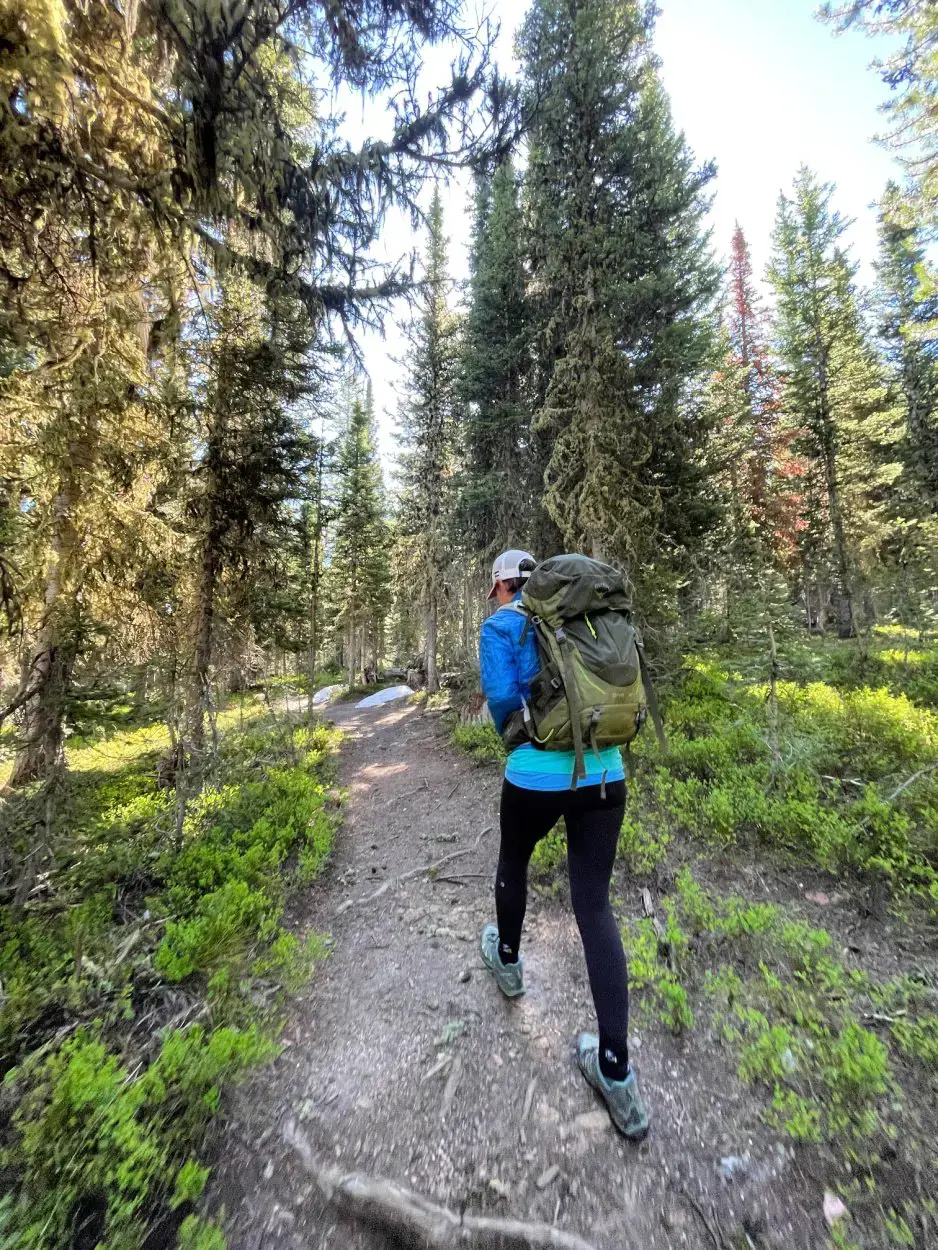
When going hiking in Colorado, it is important to be prepared for any situation that may arise. This includes having a well-stocked hiking pack with all the necessary safety items. Here are some important safety items to include in your hiking pack for Colorado.
- Map and Compass: It is essential to have a map and compass with you when hiking in Colorado. This will help you navigate and find your way in case you get lost or lose your trail. Familiarize yourself with the map and compass before heading out on your hike.
- First Aid Kit: A first aid kit is crucial in case of any injuries or accidents that may occur during your hike. Make sure your first aid kit includes bandages, gauze pads, disinfectant, adhesive tape, tweezers, and any necessary medication.
- Water and Water Purification: Staying hydrated is extremely important while hiking in Colorado, especially at high altitudes. Carry enough water for your hike and also include a water purification system or tablets in case you need to refill your water from natural sources such as streams or lakes.
- Food and Snacks: Pack enough food and snacks to keep you energized and fueled throughout your hike. Choose lightweight and high-energy foods such as trail mix, energy bars, and dried fruits that can be easily carried in your backpack.
- Extra Clothing and Layers: Colorado weather can be unpredictable, especially in the mountains. Pack extra clothing layers including a lightweight rain jacket, a warm hat, gloves, and an extra pair of socks. These clothing items can help protect you from sudden weather changes and keep you warm in cold temperatures.
- Emergency Shelter: It is always a good idea to carry an emergency shelter such as a lightweight tent or a space blanket in case you need to spend an unexpected night outdoors due to unforeseen circumstances.
- Personal Locator Beacon (PLB): Consider carrying a PLB, which is a small device that can send a distress signal to emergency services and provide them with your exact location in case of an emergency. This can be a lifesaver in remote areas without cell phone reception.
- Headlamp and Extra Batteries: A headlamp is an essential item to have in your hiking pack. It can be used for navigating in the dark or in case of emergencies. Make sure to pack extra batteries to ensure your headlamp remains functional throughout your hike.
- Whistle and Signal Mirror: A whistle can be used to alert others or call for help in case of emergencies. A signal mirror is also useful for attracting attention and signaling for help.
- Personal Identification and Contact Information: Carry your identification card and write down your emergency contact information. This can be helpful in case of an accident or emergency where you are unable to communicate.
Remember, it is important to have the necessary safety items in your hiking pack, but it is equally important to know how to use them. Familiarize yourself with the items in your pack, their functions, and practice using them before embarking on your hike. This will ensure you are well-prepared and can handle any situation that may arise while hiking in Colorado.
Uncovering the Essentials: A 5-Day Guide to Packing for the Hunt
You may want to see also

Are there any unique items or considerations to keep in mind when packing for hiking in the Colorado mountains?
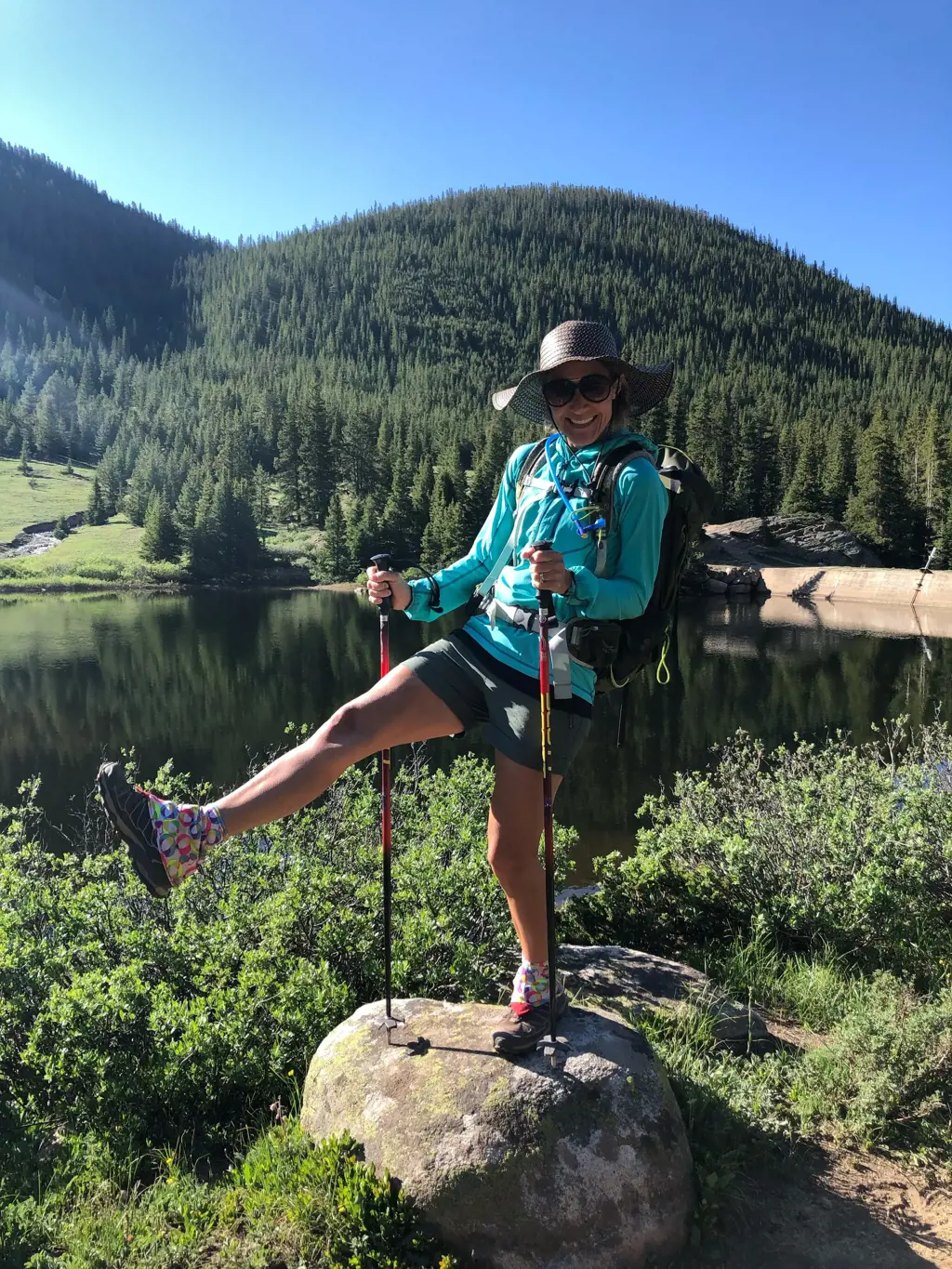
When packing for a hiking trip in the Colorado mountains, there are a few unique items and considerations to keep in mind. The Colorado mountains are known for their unpredictable weather, high elevations, and rugged terrain, so it’s important to be prepared for a variety of conditions. Whether you’re a seasoned hiker or new to the trails, here are some essential items to include in your packing list.
- Layered Clothing: The weather in the Colorado mountains can change dramatically throughout the day, so it’s important to dress in layers. Start with a moisture-wicking base layer to keep you dry and comfortable, add a insulating mid-layer to keep you warm, and top it off with a waterproof and windproof outer shell to protect against the elements. Don’t forget to pack extra socks and a hat to keep your extremities warm.
- Hiking Boots: A good pair of hiking boots is essential for navigating the rugged terrain of the Colorado mountains. Look for boots that provide ankle support and have a sturdy sole for traction on uneven surfaces. Make sure to break them in before your trip to avoid blisters and discomfort on the trail.
- Navigation Tools: As the Colorado mountains can be vast and remote, it’s important to have a way to navigate the trails. Bring a detailed topographic map, a compass, and a GPS device if possible. Familiarize yourself with the trail you’ll be hiking and be prepared to navigate based on your surroundings if needed.
- Water and Food: Staying hydrated and properly nourished is crucial for hiking in the mountains. Carry at least two liters of water per person and consider using a water filtration system to replenish your supply from natural sources along the trail. Pack high-energy snacks such as nuts, trail mix, and energy bars to keep your energy levels up during your hike.
- Sun Protection: The Colorado mountains are at high elevations, which means the sun’s rays can be even stronger. Apply a high SPF sunscreen and wear a wide-brimmed hat and sunglasses to protect your skin and eyes from the sun. Don’t forget to reapply sunscreen throughout the day, especially if you’re sweating or swimming.
- Safety Gear: While hiking in the Colorado mountains, it’s important to be prepared for any emergencies. Carry a first aid kit with essentials such as bandages, antiseptic ointment, and pain relievers. Additionally, bring a whistle, a flashlight or headlamp, and a multi-purpose tool in case you need to signal for help or make emergency repairs.
- Altitude Adjustment: The high elevations of the Colorado mountains can pose some challenges, especially if you’re coming from lower altitudes. Take it easy during your first few days to allow your body to acclimate, and stay hydrated to avoid altitude sickness. Be aware of the symptoms of altitude sickness, which include headache, nausea, and shortness of breath, and descend to lower elevations if necessary.
- Leave No Trace: Finally, when hiking in the Colorado mountains, it’s important to practice Leave No Trace principles to protect and preserve the natural environment. Pack out all of your trash, avoid damaging vegetation, and stay on designated trails to minimize your impact on the fragile ecosystems of the mountains.
In conclusion, packing for a hiking trip in the Colorado mountains requires careful consideration of the unique terrain and weather conditions. By packing the right clothing, footwear, navigation tools, and safety gear, and taking steps to adjust to the high elevations, you can have a safe and enjoyable hiking experience in this beautiful part of the world. Remember to always be prepared, stay hydrated, and respect the environment around you. Happy hiking!
The Ultimate Packing Guide for a Cruise to New Caledonia
You may want to see also
Frequently asked questions
When packing for a hiking trip in Colorado, it is important to be prepared for a variety of weather conditions. You should pack clothing layers that can be easily added or removed, as the temperature can change throughout the day. It is also important to bring sturdy, comfortable hiking boots, as the terrain can be rocky and uneven. Additionally, you should pack plenty of water, snacks, and a map or GPS device to navigate the trails.
While you don't necessarily need any special equipment for hiking in Colorado, there are a few items that can enhance your experience and ensure your safety. It is recommended to bring a hiking pole or trekking poles, as they can provide extra stability on steep or uneven terrain. You may also want to bring a hat, sunscreen, and sunglasses to protect yourself from the strong sun at high altitudes. A first aid kit is also a good idea in case of minor injuries on the trail.
If you are planning to camp while hiking in Colorado, there are a few additional items you will want to pack. A sturdy tent, sleeping bag, and sleeping pad are essential for a comfortable night's sleep. You should also bring a camp stove and cooking utensils if you plan on preparing meals at your campsite. It is important to research the specific regulations and guidelines for camping in the area you will be hiking in, and pack accordingly. Additionally, don't forget to bring a headlamp or flashlight for navigating your campsite at night.







